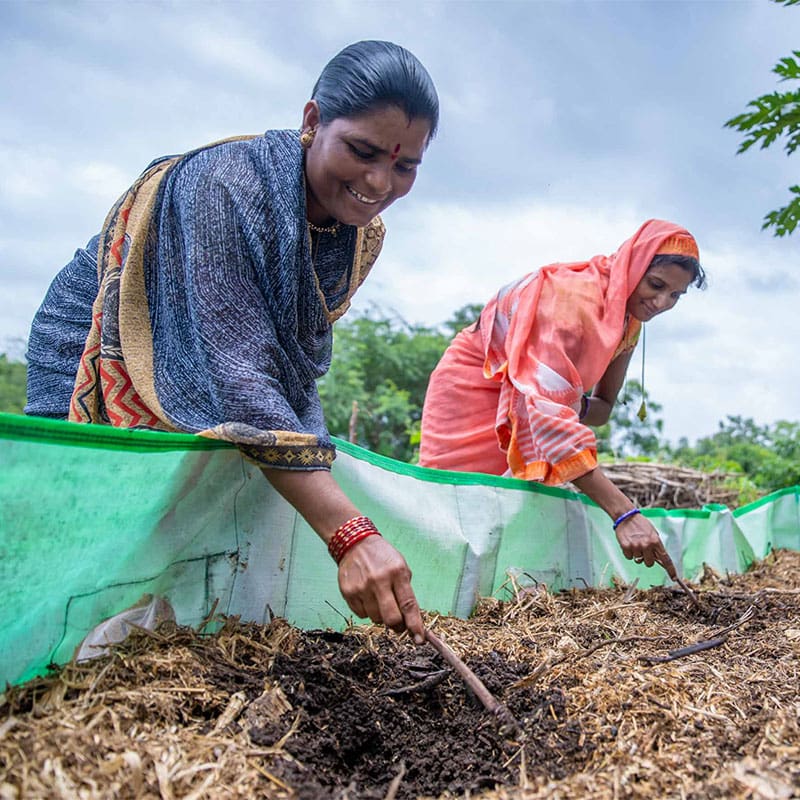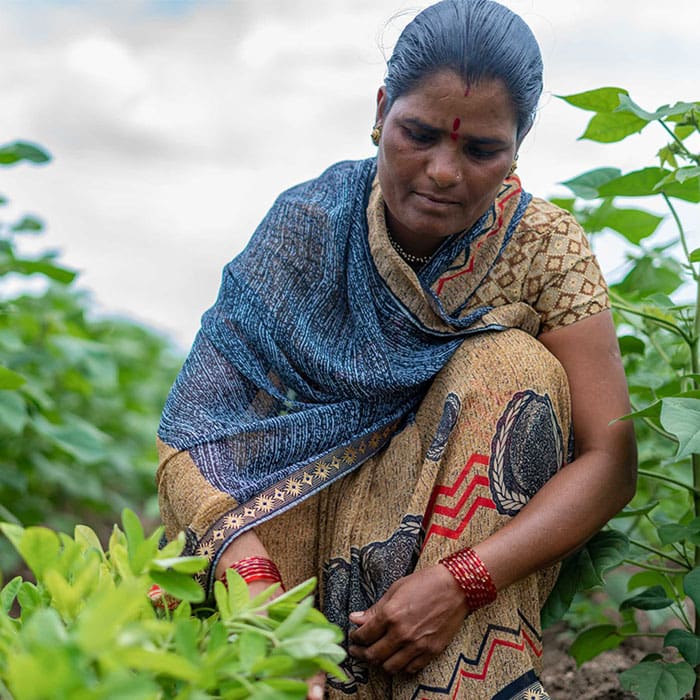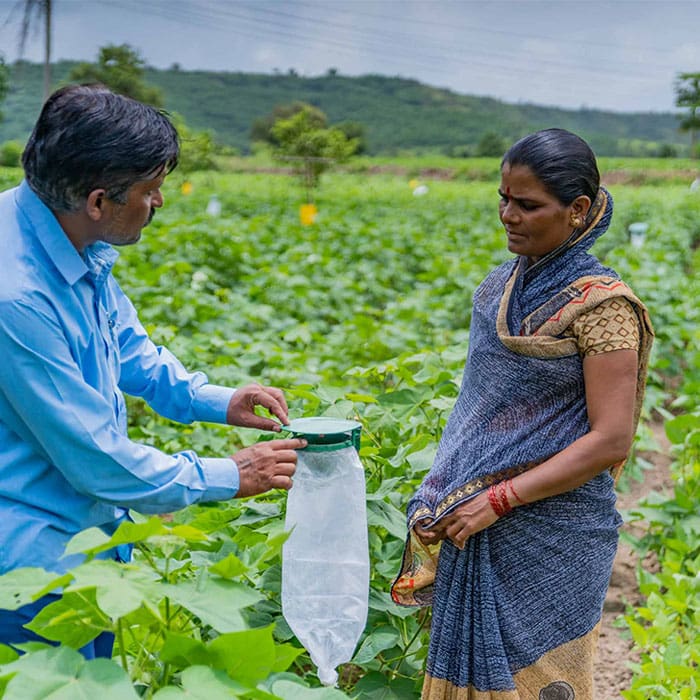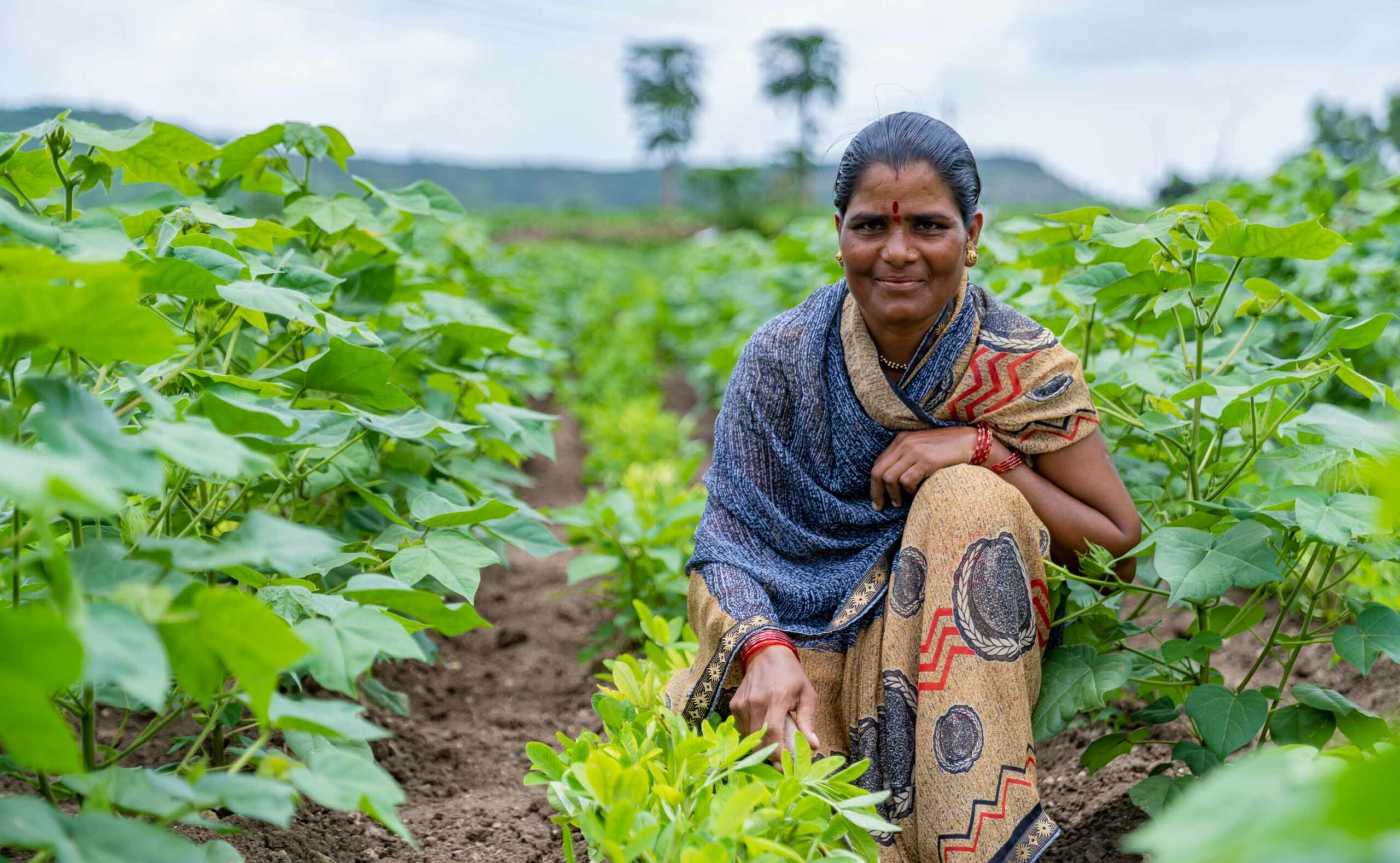Latabai is a 35-year-old female farmer who cultivates organic cotton across 2 acres (0.8 hectares) of her 3 acres (1.2 hectares) of agricultural landholding. She lives with her husband and 3 children in Maharashtra. Though she is committed to practising organic cultivation across her entire land, it is only cotton that is currently is certified under the organic system so far. Like many other farmers in her village, she has expanded her organic cultivation practices to other crops as well, like red gram, maize, bajra and jowar. Most of these food crops are used for household consumption, with the surplus quantities sold in local markets, which averages at around 60% annually.

Latabai produced 1,000 kg of organic seed cotton, from her 2 acres (0.8 hectares) of land, selling the entire production directly to OCA’s Implementing Partner (IP) for 54,000 INR (611 Euro). She received a premium of 5,000 INR (57 Euro) bringing her net income from organic cotton to 27,910 INR (316 Euro). Her gross earnings from cotton are 30% of the total household income, which totalled 161,000 INR (1,821 Euro), with the remainder of the income coming from non-agricultural work and sale of her other agricultural crops in the local market.
Although she appreciates the premium paid for organic cotton, she would also like to receive similar premiums for the other crops that she grows organically.
Latabai commented:
“Receiving a premium for my other organic crops would increase my household income by almost 20%. I also think that access to a premium rate for other crops would ultimately also motivate other farmers in the village to practice organic cultivation, beyond just cotton.”

After exploring some options, Latabai reached out to Art of Living Foundation, an NGO promoting organic farming of food crops in the district. The foundation has established a supply chain to procure food crops like vegetables, wheat and maize from smallholder farmers which is then sold through their outlets in the town. In order for the foundation to procure and market the crops, Latabai must have official organic certification for the remaining one acre (0.40 hectare) of her land. Latabai believes that she and the 200 plus farmers in the village would benefit greatly if the IP could facilitate the certification of the portions of their land that they currently use to cultivate crops other than cotton. This will provide them with the opportunity to collaborate with buyers like the Art of Living Foundation, so the produce can reach the desired market.

When crop diversification practices are encouraged and established in the community, Latabai believes it will eventually optimise the use of resources such as water and improve the food security situation for families. OCA’s local partner is now exploring these possibilities for the forthcoming seasons, as they believe this will help farmers expand their organic potential and improve general growing conditions across all crops.
To find our more about OCA’s impact on the ground download the latest Farm Programme Impact Report.

